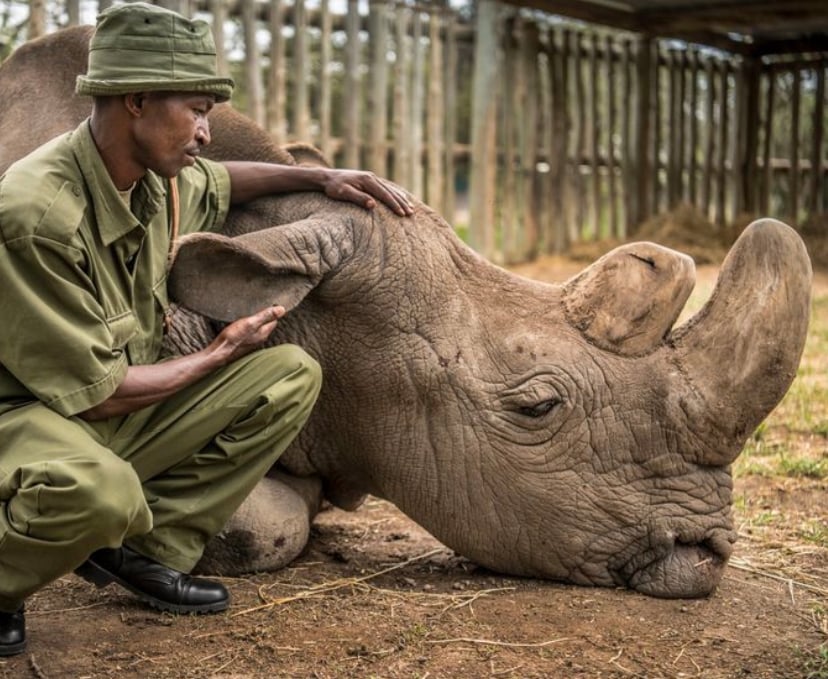
How to save the last two Northern White Rhinos on Earth,
and help them not to be the last.
Journey to Kenya to meet the last two Northern white rhinos and learn about the pioneering breeding efforts to save the species, discover wildlife on safari game drives, and explore the Sweetwaters Chimp Sanctuary founded by Dr. Jane Goodall, David Sheldrick’s Elephant Orphanage, the Giraffe Centre, and more!
Only 15 places for each session are available on this 9-day adventure. Adults 18+ are invited to apply.
This program is perfect for people who want an all-inclusive Kenya experience that is fully planned for them but also want to spend lots of time learning about conservation and enjoying wildlife safari drives. You will be helping to support an amazing rhino conservation effort while getting an understanding of all it takes to protect and preserve these animals.
$3,950 USD per person not including international airfare. This program is not eligible for an early enrollment discount.
The program fee includes:
The program fee does not include:
No gratuities are required or expected.
Please note: This is a field project that takes place in a rustic area of Kenya. Housing is limited. Participants may be housed with other participants of the same gender. Housing on-site at Ol Pejeta is in ‘Garden Tents’ with two comfortable beds in each. If you are enrolling with a friend or partner and would like to room together, please advise and we will do our best to accommodate.
All participants will need to be fully vaccinated for COVID-19 (which may include boosters if eligible). All participants will adhere to the Loop Abroad COVID policy which includes providing a negative COVID test within 2 days prior to travel, wearing a mask when flying and when interacting outside of your “travel pod” (your group and staff), and daily symptom report, and testing if symptoms are present.
If a program is canceled by Loop Abroad due to COVID-19, we offer a full refund of all tuition paid, including the deposit.
Click “Apply Now”, fill out the form, and pay the $1000 non-refundable program deposit. Your spot will be held immediately. No alumni discounts or other discounts are available for this program.
Please note that this is an active, outdoor program that requires participants to be able to walk outdoors, get safely in and out of vehicles, and safely able to participate in working with animals outdoors for a full day.
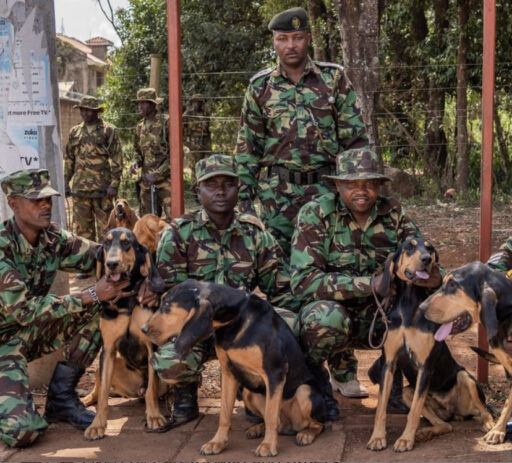
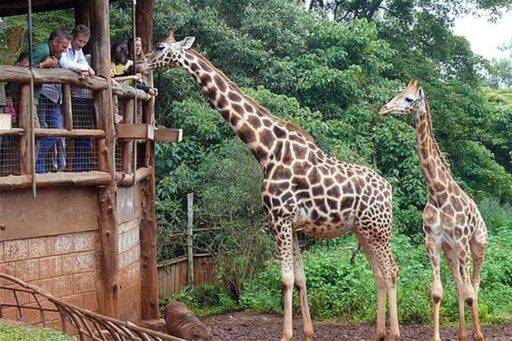
You will be staying in the heart of Ol Pejeta at The Stables accommodation in the bush around Mt Kenya and surrounded by the ‘Big 5’. During the program, your days will be busy, as you will have the chance to be involved in all the activities of Ol Pejeta.
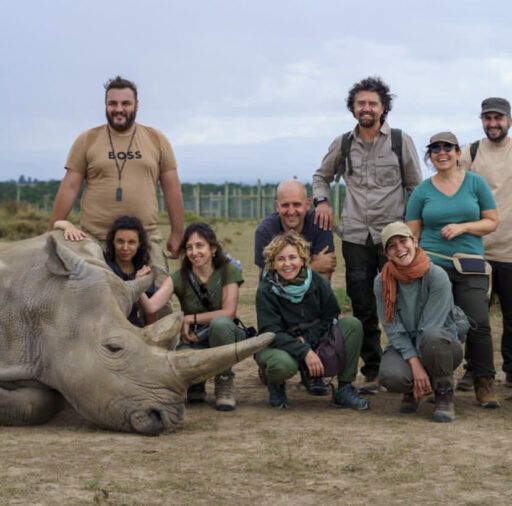
Program Airport: Jomo Kenyatta International Airport (NBO), the international airport in Nairobi, Kenya
Housing and Meals:
Housing at Ol Pejeta is rustic and un-fancy. Housing on site is in ‘Garden Tents’, which are located close to the main building and amenities, and consist of two comfortable beds in each.
Rooming includes 24/7 security, free wifi, a camp manager, and all linens.
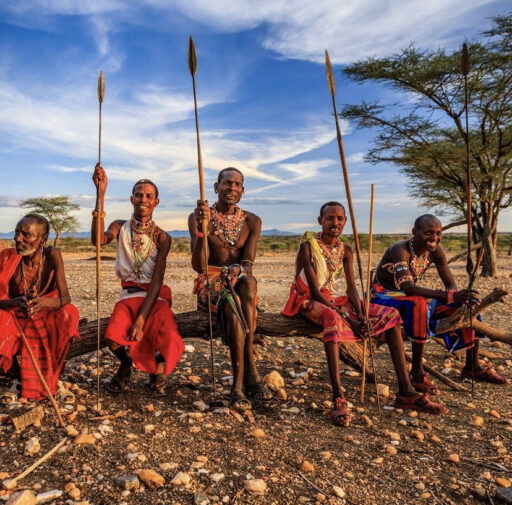
For lunch and dinner, there will generally be one option prepared and provided for the group, with an alternative for vegetarian/vegan participants. For example, lunch or dinner one day might be beef stroganoff with rice and cabbage, fruit, and dessert.
NB: All participants must be fully vaccinated against COVID-19, and will be asked to provide a negative COVID test before arrival.
Please note that the order and specific activities of the program are subject to change based on weather, animal health emergencies, and other external factors. This is our expected itinerary and should help to give you an idea of what to expect on Kenya Wildlife Conservation.
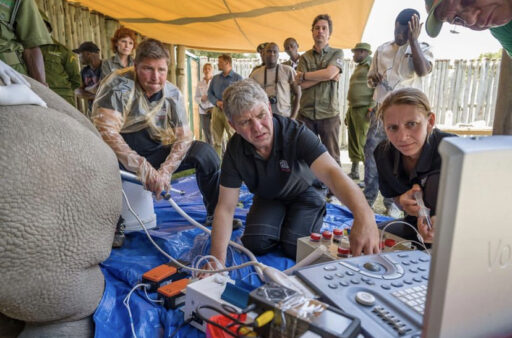
You may choose to arrive in Nairobi on this day, or, depending on your flight time, arrive the night before. Your tuition includes airport pickup and transfer to the Wildebeest Eco Camp (relaxing departure location with housing, restaurant, and pool).
On Day 1 of our program, your program transport leaves Wildebeest Eco Camp at 11:30am to begin the 5-hour drive to Ol Pejeta. At arrival, you will check in and have a safety orientation and welcome dinner with your travel companions.
Day 2
We start the day with an early morning safari game drive to see some of the unique wildlife of Ol Pejeta. This day, you will visit the last two Northern White Rhinos on Earth in an open-roof safari vehicle.
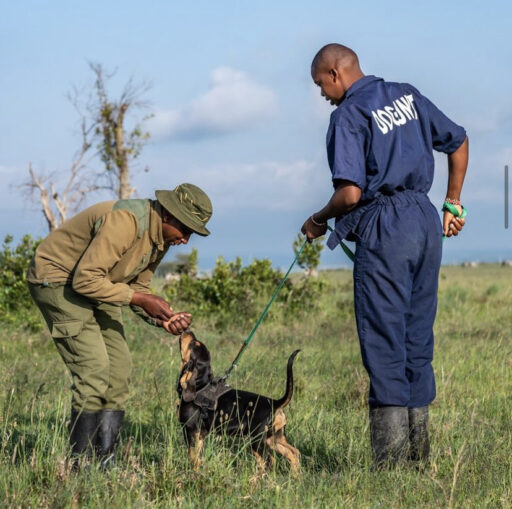
Day 3
Spend a day with the anti-poaching teams, learning about their work and training with tracker dogs. This is a full-day field expedition that begins approximately 8am and finishes in the afternoon.
Day 4
Today, you will get to participate in field work with the ecological monitoring department to help manage conservation area. This includes learning to track and identify predators, as well as setting up camera traps and learning how to identify individuals of certain species, such as lions and zebras. You will help assist with ongoing vegetation monitoring and management.
Day 5
Have you ever wanted to stand on the Equator? Today you will, as you spend the day learning about black rhino tracking and monitoring. Take a bush walk to spot birds and other wildlife on Ol Pejeta’s conservation land, and enjoy a sunset game drive.
Day 6
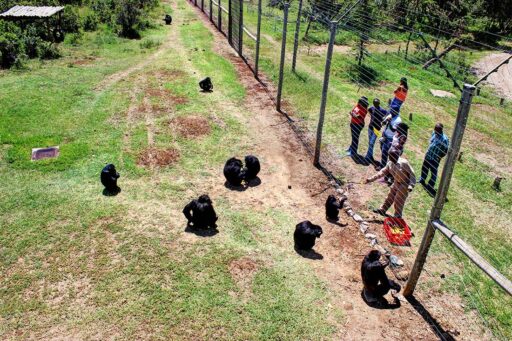
After lunch you’ll spend time with the veterinary team at Ol Pejeta and learn about the mobile vet unit and the care and treatment for Baraka the blind black rhino. End the day with a night safari game drive and see what wildlife you can spot at night.
Day 7
Walk with herders and learn how Ol Pejeta integrates cattle with wildlife and how it is integral to their success. You’ll spend a half-day grazing cattle on the plains with the herders and spotting wildlife in the process.
Later in the day, collect the camera traps you set earlier in the week and identify the animal data you’ve collected over the past few days. In the evening you’ll hear from the founder of Ol Pejeta about the sanctuary’s mission and the future of conservation in Africa.
Day 8
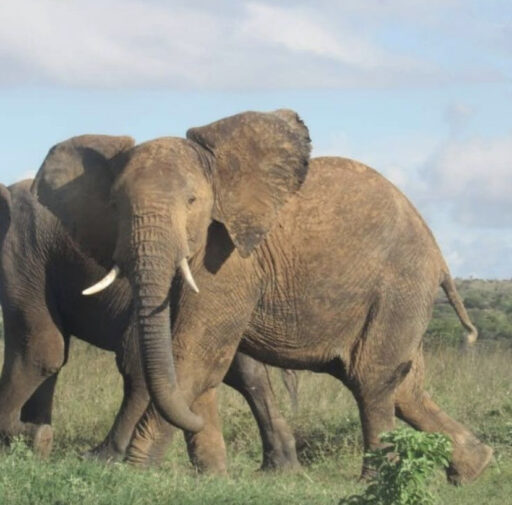
Day 9
Checkout of Wildebeest Eco Camp (10am) and head to the airport for your departure. Taxi transfer to the airport is included in your program tuition.